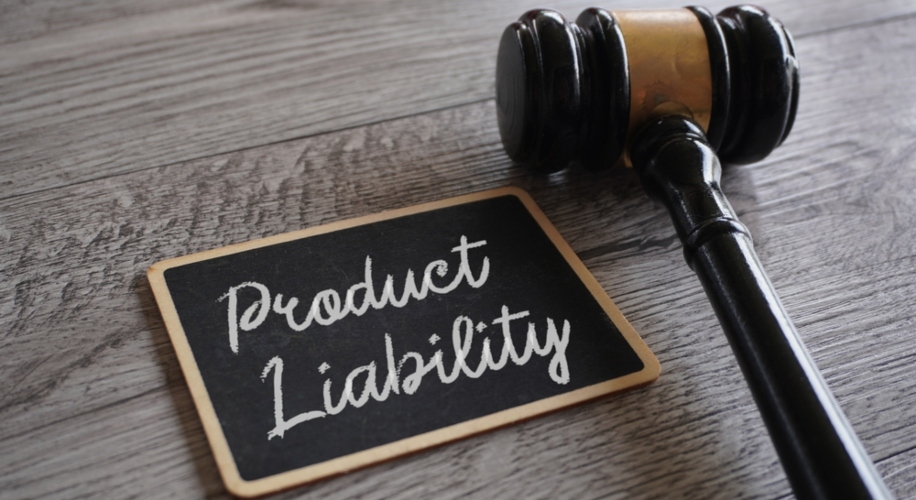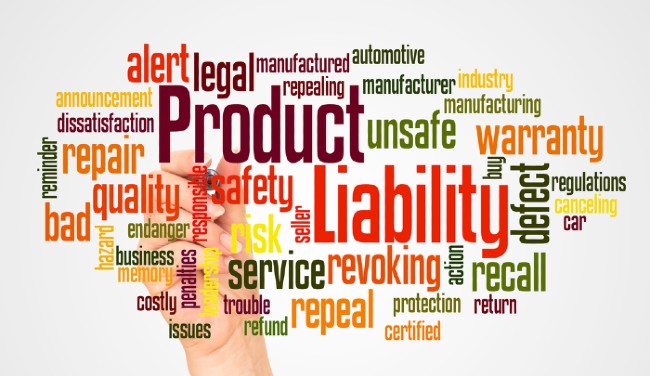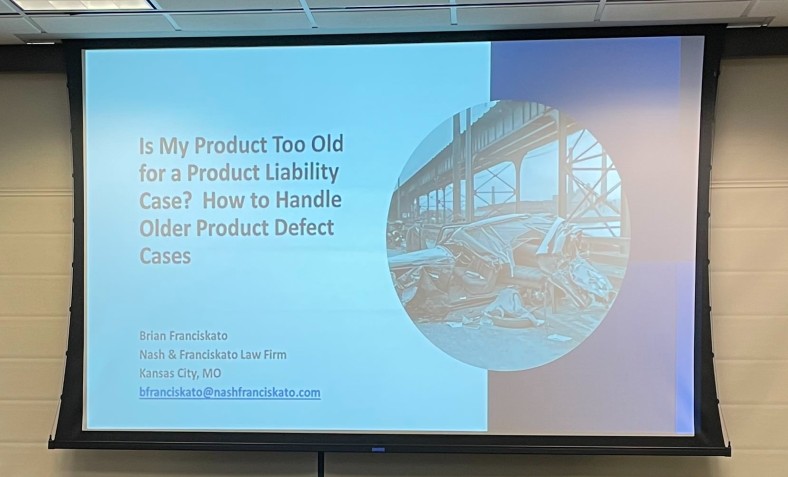
In Kansas City and across the country, dangerous and defective products are responsible for thousands of injuries each year. Unfortunately, many items reach the market with hidden flaws—posing serious risks to consumers. So, what do you need to know when a seemingly safe product causes harm?

Updated: July 2025
Companies are supposed to design and manufacture safe products. No matter what the product is, it should be reasonably safe and, if necessary, come with clear instructions and warnings. Unfortunately, that is not always the case.

Updated: July 2025
We rely on products every day—from vehicles to toys to power tools—trusting they’ll work safely and as intended. But when something goes wrong, a defective product can cause serious harm. If you have been hurt by a product you thought was safe, you may want to pursue a product liability claim.

At the AAJ Annual Convention in July, Brian Franciskato, one of our trial lawyers and also a speaker, talked about handling older product liability cases.

Since April 2021, the FDA has received more than 69,000 medical device reports (MDRs), including 168 reports of death, associated with the PE-PUR foam breakdown or suspected foam breakdown, which led to the Philips CPAP recall.
Source: FDA Safety Communication

Exactech recalled polyethylene insert due to the possibility of premature wear and degradation, expanding the initial recall of its knee and ankle replacement systems.
In August 2021, Exactech first issued a recall of its knee arthroplasty polyethylene insert packaged in non-conforming bags limiting it to only those products with a remaining shelf life of five years or greater as of August 31, 2022. However, as of February 7, 2022, that recall has been expanded to include ALL knee and ankle polyethylene inserts packaged in non-conforming bags regardless of label or shelf life.

Chief U.S. District Judge Nancy Rosenstengel, a federal judge in southern Illinois and the one who is handling the Paraquat multidistrict litigation, ruled that claims against Syngenta Corp. and Chevron USA can move forward.

Paraquat dichloride, commonly known as “paraquat”, is a popular, fast-acting, non-selective herbicide agent used in the United States. Paraquat is known to be a toxic weed killer that is lethal at low doses, and exposure has been linked to adverse health effects, such as Parkinson’s disease.

Are you still using one of the Philips defective CPAP, BiPAP or other ventilator machines? Have you experienced any serious health problems? Are you aware that the sound abatement foam can break down and lead to health problems?

After recently conducting an inspection of a Philips Respironics manufacturing facility, the US FDA released an update related to the June 2021 Class I recall of Philips Respironics CPAP, BiPaP and other ventilators.